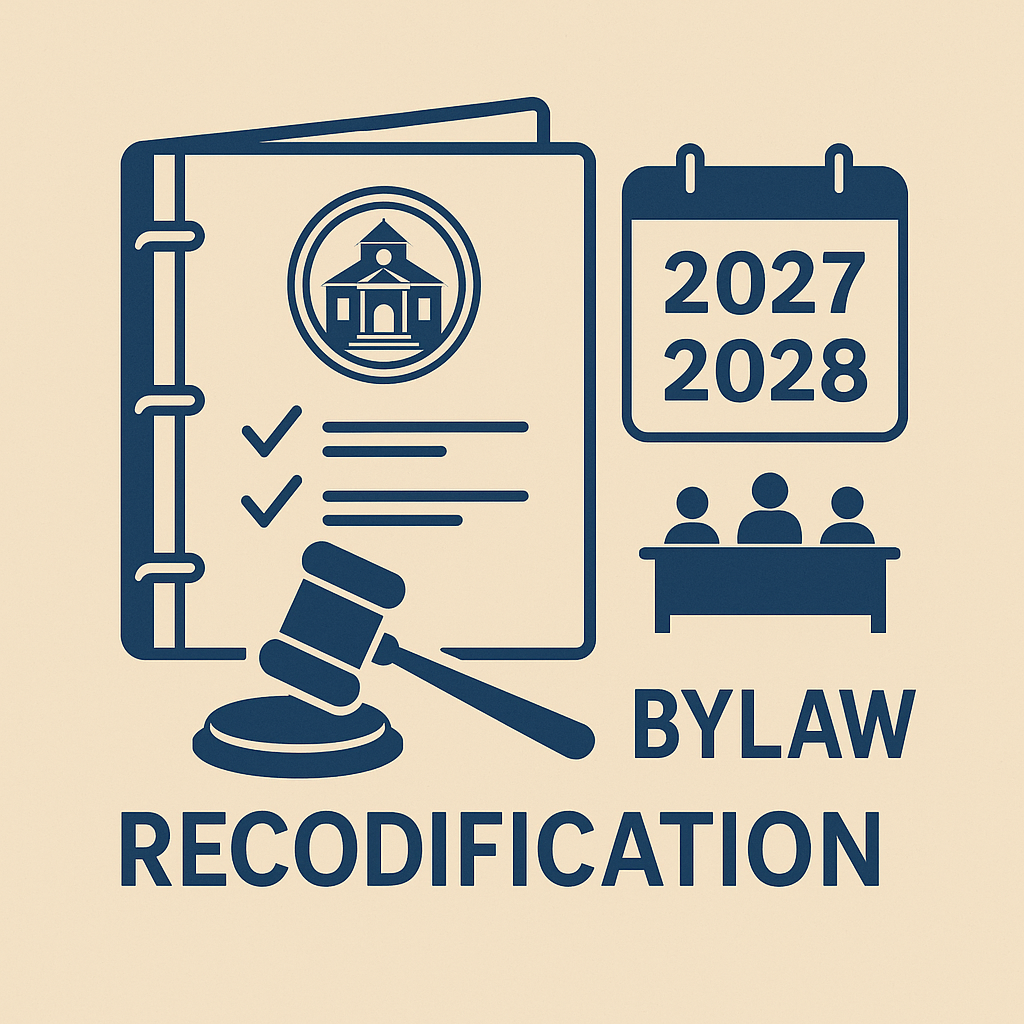Town Clerk Trudy Reid briefed the Personnel Board on September 3 about the town’s ongoing recodification of all bylaws, the first comprehensive review in more than two decades. Reid explained that the vendor, General Code who hosts the Town bylaws online, consultants spent several months comparing Wayland’s bylaws with state law. The review recommended eliminating four unused definitions from the personnel bylaw: “appointing authority or employing agency,” “class,” “step rate,” and “supervisory authority.”
Board member Paul Morenberg recalled that the board previously sought to strike these definitions, but Town Meeting had retained them on the advice of Town Counsel. Chair Maryanne Peabody confirmed that Town Meeting will again have final approval when the updated bylaws are presented, though Reid said that will not occur until 2027 or 2028. Board member Mary Ellen Castagno requested that revised text be provided to the board prior to Town Meeting for review. Reid agreed to keep the board informed as General Code moves through the next stage, with all materials due back to the vendor within the next two to three weeks.
Morenberg raised concerns with Section D of the bylaw, which states the Personnel Board “shall receive such reasonable assistance and information as it may require.” He argued the language is too vague and leaves the board without consistent help, particularly with minute-taking. Castagno supported clarifying the section to ensure assistance with meeting packets and administrative support.
After debate over whether AI technology could suffice or if human support was needed, members crafted language specifying that “reasonable assistance may include minute taking assistance by a town employee or consultant, as well as access to software applications for minute taking or other necessary functions.” The revision was unanimously approved.
Human Resources Manager Katherine Ryan updated the board on the classification and compensation study. She reported that all employees completed job analysis questionnaires and were interviewed individually or in groups. A preliminary classification system has been drafted, and department heads are now reviewing updated job descriptions.
Ryan noted challenges in properly classifying licensed social worker positions in the Council on Aging and Youth Services, and community health nurses, who are town rather than school employees. Salary survey responses have been received from nearly all of the 15–16 towns contacted, and the consultant expects to complete the final report by the end of October. Ryan expects the findings will likely be presented to both the Personnel Board and the Select Board in early November.
The board also approved its 2025 annual report. Members also tentatively agreed to establish a regular monthly schedule meeting for the first Wednesday of each month at 4 pm after Oct 1 at 3pm for Yom Kippur.
















